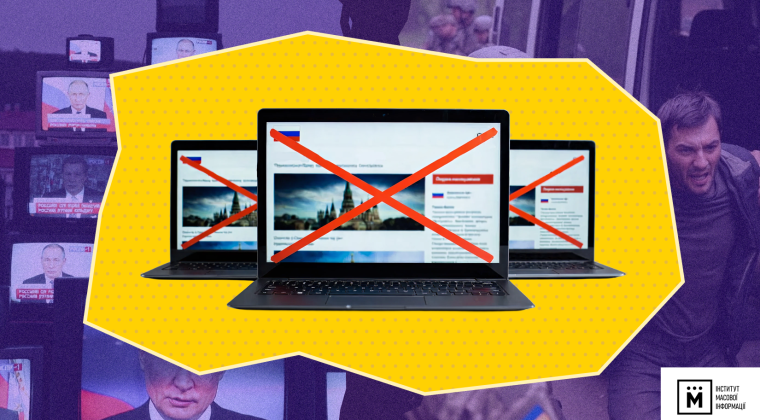The annual transparency survey among the leading online media for 2022 has shown that only 34% of the national Ukrainian news websites have made their editorial policy public in some form.
IMI conducted the research in July–August 2022, monitoring the 50 most popular media outlets according to SimilarWeb. The percentage was the same as last year, although the list of the surveyed websites has changed slightly due to shifts in their popularity.
Editorial regulations posted on the websites (for the TROs) or explanations on how the media outlet adheres to professional standards of journalism while creating content and what this content should be counted as making the editorial policy public. Descriptions of the media outlet’s targeted audience, its advantages over competitors, or declarations about its publication were not considered editorial policy. Websites with a full editorial policy posted were given 1 point, websites without it – 0 points. The middle options, such as, say, describing the editorial policy in a few sentences, received 0.5 points.
Full editorial policies were posted by the following online media (13 out of 50 surveyed, or 26%): Ukrainska Pravda, Novoe Vremya, RBC Ukraine, Channel 24 website, Liga, UNIAN, Ohlyadach (Obozrevatel), Suspilne’s website, Ukrainsky Novyny, Radio Liberty, Telegraph, Babel, and Channel 5 website. We will remind that, according to the last year’s findings, slightly over 28% of the surveyed media were completely transparent at that time (but considering that they only differ by one media outlet, it can be considered a kind of a statistical error).
Another four publications were given 0.5 points for partial editorial policy transparency, namely the Ukrainian service of the BBC, Bahnet, Novyny.LIVE, and Apostrof. Last year, there were one such online media less, i.e. 6% as opposed to the current 8% – also a minimal difference of one media outlet.
As we have already noted in the previous surveys, the problem with the detailed editorial policy of the BBC is that the full sections of it are posted in English on the website of the company’s British office, and the links to some sections do not work at the moment. Novyny.Live set out the postulates of its editorial policy very briefly (as of the time of the monitoring, they were even visualized through some kind of images, but by the time of this article being written, the website already presented them in purely textual format).
Apostroph published one two-sentence paragraph: “Apostrof’s editorial policy is based on the principles of impartiality, accuracy, and reliability, as well as promptness, objectivity, and balanced presentation of information. Apostroph also adheres to ethical standards of journalism, and the content posted on our website should not promote violence, cruelty, incite racial, national, or religious enmity.”
Bahnet was also tight-lipped about their editorial policy: “The key principles of our work are based on absolute independence and impartiality, because we do not support the interests of any of the political forces. We present various – sometimes controversial – points of view, as we believe that our reader has the right to decide which position to side with themselves. But it is worth noting that our work does not go against the Ukrainian law. Bahnet’s editorial office is a team of professionals that is primarily oriented at the key principles of journalism: the relevance of information, its reliability, efficiency, and exclusivity.”
In the next, last installment in this year’s series on news websites transparency monitoring, we will talk about them disclosing the information about the ultimate beneficiaries or other persons who own the website.
*For reference. The monitoring sample included the following media outlets: TSN, Ukrainska Pravda, Novoe Vremya, Censor, RBC-Ukraine, Channel 24, Liga, Espreso, Gordon, Focus, Korrespondent, UNIAN, Ohlyadach, Glavkom, Gazeta.UA, Apostrophe, Suspilne, Zakhid.net, Ukrainski Novyny, Ukrinform, Delo.UA, Radio Liberty, Telegraph, Novynarnia, Hromadske, UNN, Politeka, Livy Bereh, Slovo i Dilo, Znay, Dzerkalo Tyzhnia, Khvylia, Komentari, Interfax-Ukraine, KP in Ukraine, Novyny.Live, Vesti, Bukvy, Babel, Fakty newspaper’s website, Bahnet, Ekonomichni Novyny, the Ukrainian service of the BBC, Antikor, ICTV, Podrobytsi, Rakurs, Priamy, Holos.UA, and Channel 5.



